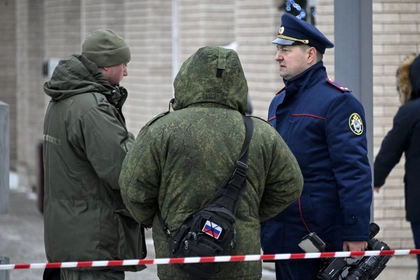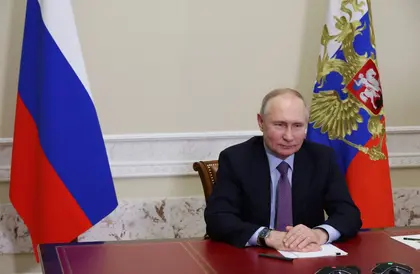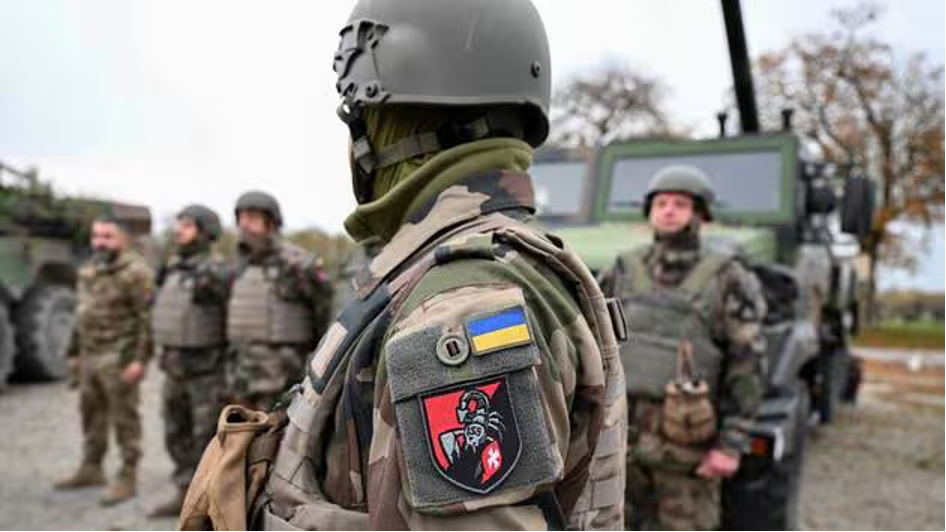President Vladimir Putin’s move to replace his top commander in Ukraine has sent political and military analysts into overdrive as they try to interpret what the decision tells us, not only about current state of the war, but also its future.
JOIN US ON TELEGRAM
Follow our coverage of the war on the @Kyivpost_official.
And it’s difficult to understate the significance of the development.
“This has not happened since 1941, when Marshal Georgy Zhukov was sent to the front to command,” a Moscow-based defense analyst told AFP on condition of anonymity.
“The Chief of General Staff doesn’t command armies anywhere. It is a different function: they coordinate, prepare, plan. Putting him in command of field forces is unprecedented. It violates all existing rules.”
Remind me, what happened?
The defense ministry in Moscow said on Wednesday it had, again, replaced its top commander in Ukraine, putting army chief of staff Valery Gerasimov in charge.
His predecessor, Sergei Surovikin, a veteran of Moscow’s wars since the Soviet invasion of Afghanistan, will become Gerasimov's deputy, working alongside two other generals, it said.
Since the announcement, experts have been weighing in what they believe it means.
What are they saying?
“Everyone seems to be in shock,” tweeted Tatiana Stanovaya, an analyst specializing in Russian elites. “A great many knowledgeable people seem to not get the gist of this decision.”

Suspect Detained in Moscow Bomb Attack That Killed Chemical Weapons General
But both Russian and Western observers broadly agree on one thing – Putin’s decision is a sign of military disarray and his growing impatience with a war he is not even close to winning.
According to the Moscow-based analyst, it shows “things are not going to plan” and there is plenty to support the view.
The short legacy of Surovikin – famous for his shaved head and uncompromising scowl, and appointed only in October – was marked by missile attacks on Ukrainian energy infrastructure, an apparent attempt to cow civilians into submission.
But that strategy has not shown signs of working, adding to Russia’s frustrations over its failure, nearly 11 months into the war, to beat Ukraine’s army, undermine its government, or warn off Western countries increasingly willing to send sophisticated weapons to Kyiv. Troop morale took a major hit when Russia suffered its worst military losses from a single Ukrainian attack with the death of at least 89 servicemen in Makiivka in eastern Ukraine over New Year.
Will it affect what’s happening on the ground right now?
Some analysts questioned the wisdom of key changes at the helm while fierce fighting is ongoing around the frontline city of Bakhmut.
“It’s inconsistent to change the head of operations in the middle of a battle,” said Tatiana Kastoueva-Jean, a Russia specialist at IFRI, a French think tank.
“It doesn’t send a good signal to unbalance the entire hierarchy from top to bottom,” she told AFP.
Is this all merely a power play by Putin?
There has been some speculation that the decision was made in part as slap in the face for Yevgeny Prigozhin, the founder of the Wagner mercenary group. Prigozhin preferred Surovikin and criticized other generals, particularly Gerasimov and Alexandr Lapin, both of whom have just been ostensibly promoted.
Prigozhin is viewed by some as a potential successor to Putin. He is using his Wagner fighters and growing reputation on the battlefield to maneuver himself into a position of greater power in the Kremlin.
In this context, the appointment of Gerasimov could reflect Putin’s desire to have a more loyal ally in charge.
But Mark Galeotti, at the Royal United Services Institute think tank in the U.K., speculated that if this is indeed the case, it could backfire.
“If you keep appointing, rotating, burning your stars, setting unrealistic expectations, arbitrarily demoting them, that’s not going to win loyalty,” he said.
What does it tell us about the next few weeks and months?
There’s broad agreement that the change in leadership will herald intensifying military action, such as a fresh offensive and a possible new mobilization drive.
“It is obvious that there are plans to expand the scale of fighting,” Alexander Khramchikhin, a Russian military analyst, told AFP. He said the goal would be to gain full control of the four Ukrainian regions annexed by Russia on Sept. 30 – Luhansk, Donetsk, Kherson and Zaporizhzhia.
As of today, Russia does not control the full extent of any of these four regions. In fact, in November, just over a month after the declared annexation, Russian forces had to pull out of Kherson city because they were trapped by a Ukrainian offensive.
The Russian leader will also find it increasingly hard to assuage the doubts of parts of the Moscow elite and public opinion, Khramchikhin said, detecting “discontent on why... (Russia) has not won this war yet.”
You can also highlight the text and press Ctrl + Enter






